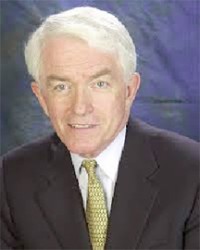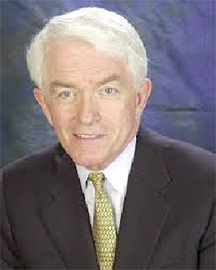HAVANA, (Reuters) – The head of the U.S. Chamber of Commerce praised the growth of free enterprise in Cuba upon his arrival in Havana yesterday at the start of a three-day visit that was criticized by a leading supporter of the U.S. embargo in Washington.

Chamber President Thomas Donohue has long opposed the U.S. trade embargo against Cuba as an impediment to free enterprise for American companies that want to do business in the communist-ruled country.
Now that free market reforms in recent years under Cuban President Raul Castro have created a class of small-business owners and private cooperatives and the government is courting foreign investment, Donohue has returned for the first time in 15 years.
“I’m here because of the evidence that we’re seeing in Cuba of an extraordinary expansion of free enterprise, the reduction in government jobs, and more private hiring, all of which is moving in the right direction,” said Donohue, whose chamber is an influential lobbying group that bills itself as the world’s largest business organization.
“As you know the chamber for years has been opposed to the sanctions as they are used,” he told reporters shortly after his arrival and before he met with Cuban Foreign Minister Bruno Rodriguez.
Earlier this month an unprecedented group of 44 policy reform advocates and former U.S. officials signed a letter urging the White House to expand licensed travel for all Americans to Cuba and seek to promote the island’s fledgling private sector. In February a public opinion poll found a strong majority of Americans favor loosening Cuba sanctions.
But in Washington, New Jersey Democratic Senator Robert Menendez expressed serious concern about the chamber’s trip, fearing it would strengthen a government that “jails foreign business leaders without justification, violates international labor standards and denies its citizens their basic rights.”
“Such conditions hardly seem an attractive opportunity for any responsible business leader,” said Menendez, a leading Cuban-American voice for maintaining strict economic sanctions on the one-party state.

